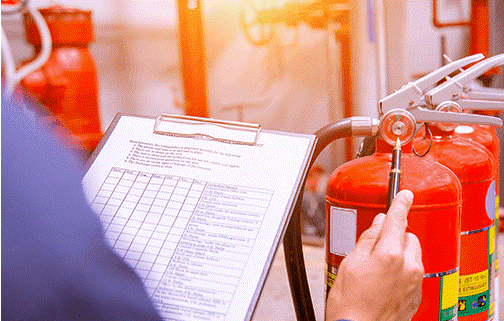
Fire safety is a paramount concern for businesses and property owners across Australia. Obtaining an Annual Fire Safety Certificate is a crucial step in ensuring the safety of occupants and compliance with regulations. In this blog, we will address five common questions surrounding these certificates, shedding light on the process and significance.
- What is a Fire Safety Certificate?
A Fire Safety Certificate is an official document issued by the relevant authorities in Australia, confirming that a building’s essential fire safety measures comply with the required standards. In New South Wales (NSW), this certification is mandated under the Environmental Planning and Assessment Regulation 2000. It serves as tangible proof that a building’s fire safety measures have been inspected, verified, and comply with the established standards. This certification instils confidence in occupants, assuring them that the property prioritises their safety through rigorous adherence to fire safety protocols.
- What Does a Fire Safety Certificate in NSW Cover?
The scope of a Fire Safety Certificate in NSW encompasses a range of fire safety measures, including but not limited to:
- Emergency lighting systems
- Exit signs
- Fire doors and exit doors
- Fire hydrants and hose reels
- Smoke alarms and detection systems
Property owners must engage qualified fire safety professionals to inspect and assess these measures to ensure compliance with the applicable standards.
- How Much Does a Fire Safety Certificate in NSW Cost?
The fire safety certificate NSW cost can vary depending on several factors. These factors may include the size and type of the building, the complexity of fire safety measures installed, and the chosen certifier. It’s essential to obtain quotes from certified professionals to get an accurate estimate tailored to the specific requirements of the property.
- When is the Best Time to Apply for a Fire Safety Certificate?
Property owners should apply for a Fire Safety Certificate as soon as the essential fire safety measures are installed and verified. This proactive approach ensures that the property remains compliant with regulations and minimises the risk of penalties for non-compliance. It’s advisable to engage a certified fire safety professional early in the process to facilitate a smooth and efficient certification procedure.
- What Happens if a Property Fails to Obtain a Fire Safety Certificate?
Failure to obtain a fire safety certificate in NSW within the required timeframe can have serious consequences. Property owners may face penalties, and in extreme cases, authorities may issue orders to cease occupation until the necessary fire safety measures are in place. This underscores the importance of prioritising fire safety and compliance to protect both occupants and property investments.
Understanding the nuances of Annual Fire Safety Certificates is crucial for property owners and businesses in Australia, particularly in NSW. By addressing these common questions, we hope to demystify the certification process and emphasize the significance of proactive fire safety measures. Compliance not only ensures the well-being of occupants but also safeguards against potential legal and financial repercussions. Stay informed, stay safe!
